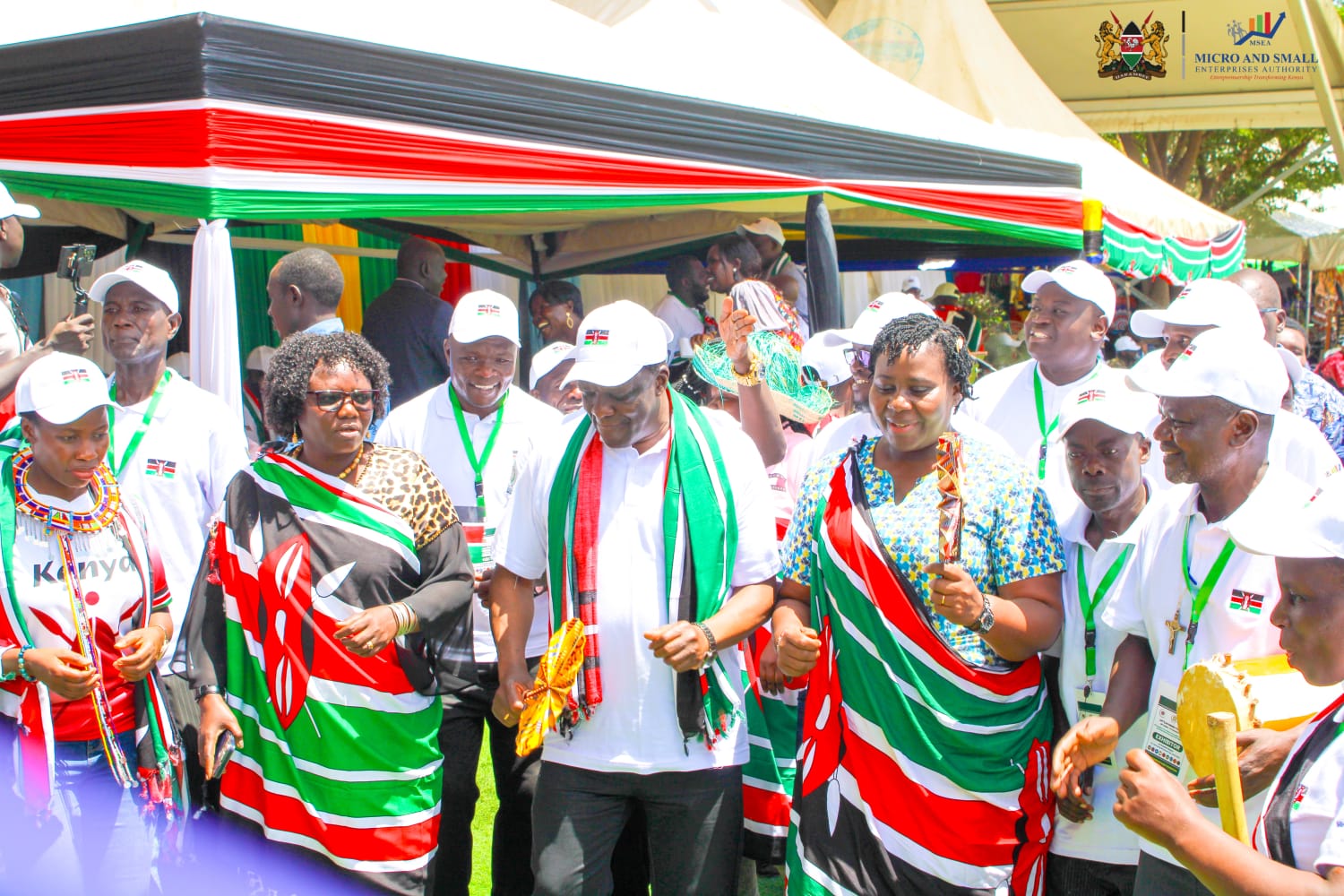Kenya opens EAC market to 400 MSEs at 24th regional trade fair
By MYGOV REPORTER
The Government facilitated over 400 medium and small enterprises to participate in the 24th East African Community (EAC) Micro, Small, and Medium Enterprises (MSMEs) Trade Fair held in Juba, South Sudan.
This was in a bid to help them access markets in the East African Com munity region.
Speaking during the Kenya Day celebrations at the Fair that is coming to an end today, the Cabinet Secretary for Cooperatives and Micro, Small and Medium Enterprises (MSME) Development Wycliffe Oparanya noted that the trade fair captured the developmental aspirations of the intra-EAC trade region and recognized the important role that the development of domestic production capabilities plays in the development of the regional economies.
“MSMEs account for over 90 per cent of employment in the region and contribute around 29 per cent to the GDP of the EAC market,” Oparanya stated.
“The annual trade fair has distinguished itself as an instrument for promoting intra-EAC trade and investment by enabling businesses to interact and access market information and opportunities.
This event has presented an opportunity for 483 Kenyan MSMEs to further understand the emerging market dynamics and business practices to facilitate business linkages for increased trade” the CS said.
The Fair, Oparanya said, was not only a forum for showcasing what Kenya has to offer to the regional market but also played a leading role in facilitating trade and business exchanges among participating countries while at the same time offering an exciting platform for launching new and improved technologies targeting both the local and regional markets.
“The Government is also exploring new development plans to improve MSMEs’ awareness of digital markets and trade to sustain e-commerce,” Oparanya said.
Despite their importance, Oparanya observed that many MSMEs struggle to integrate into regional value chains and the broader continental trading system. He said factors such as competition, market adaptability, and constraints in knowledge and technology hinder their growth potential.
“In a world increasingly shaped by globalization, it is essential for our MSMEs to innovate and adapt,” he said. T he CS noted that innovation is not solely about technological advancements.
“New marketing strategies and organizational improvements can enable small enterprises to participate more actively in the innovation process without requiring extensive investment,” he explained.
He underscored the collaborative nature of modern business innovation, which allows smaller firms to benefit from partnerships and networks, thereby enhancing productivity.
Oparanya also de scribed the “Buy Kenyan Build Kenya” initiative, which aims to promote domestic production and integrate local enterprises into the regional economy as a game changer which aligns with the East African Industrialization Strategy which targets a 25 per cent increase in intra-regional manufactured exports by 2032.
“We are exploring new paths to improve regional trade and enhance the competitiveness of our MSMEs,” he said. “When governments and the private sector work together, the impact on diversifying economies and promoting inclusive growth is significant,” Oparanya said.

